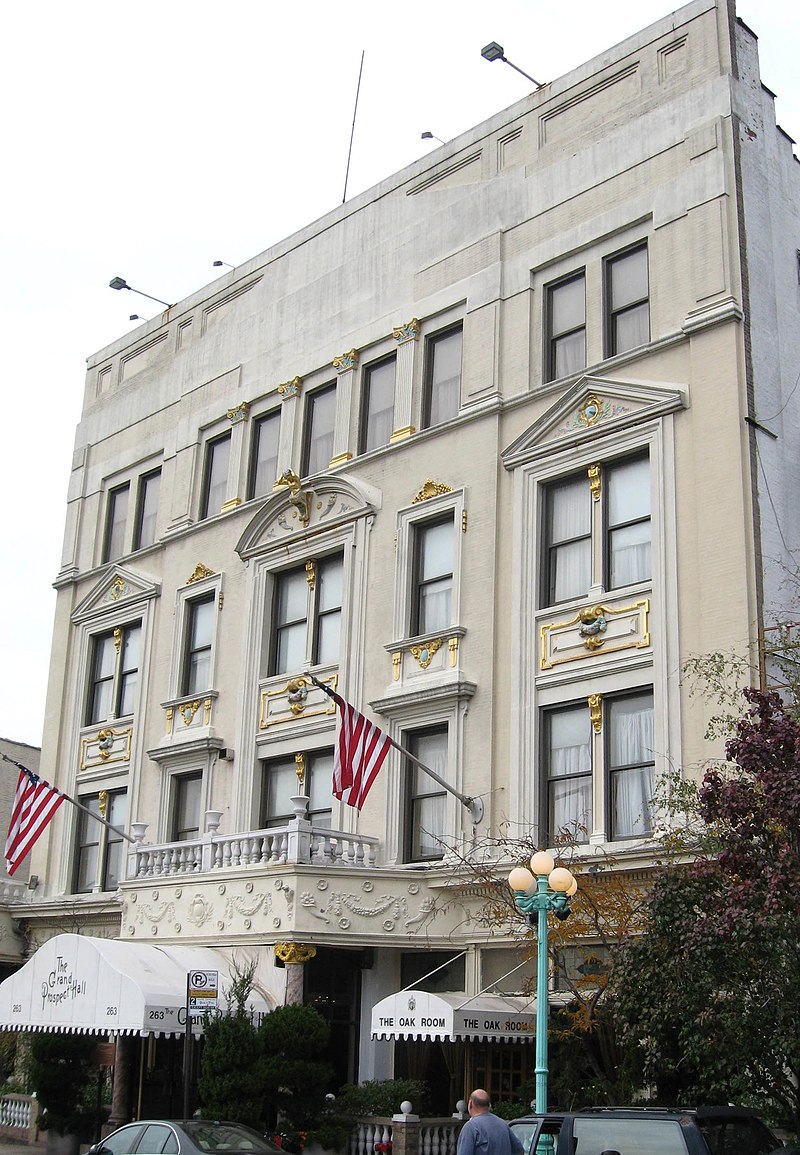Prospect Hall, near demolition, boasts rich Brooklyn Heritage

The Grand Prospect Hall in Park Slope, known to generations of Brooklynites. Wikimedia public domain photo by Jim Henderson
From Brooklyneagle.com
When most New Yorkers heard the recent news that demolition papers have been filed (although not yet approved as of press time) by the new owners of the Grand Prospect Hall in Park Slope, their thoughts turned to the TV ads in which owner Michael Halkias, showing off the building’s opulent 19th century interior, proclaimed, “We make your dreams come true!”
However, the Grand Prospect Hall was much more than a wedding and banquet hall, and its legacy goes much further back than the era of Halkias and his wife Alice, who bought the then-deteriorating structure in 1981.